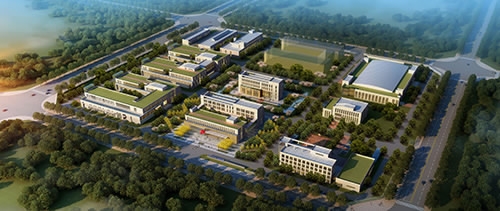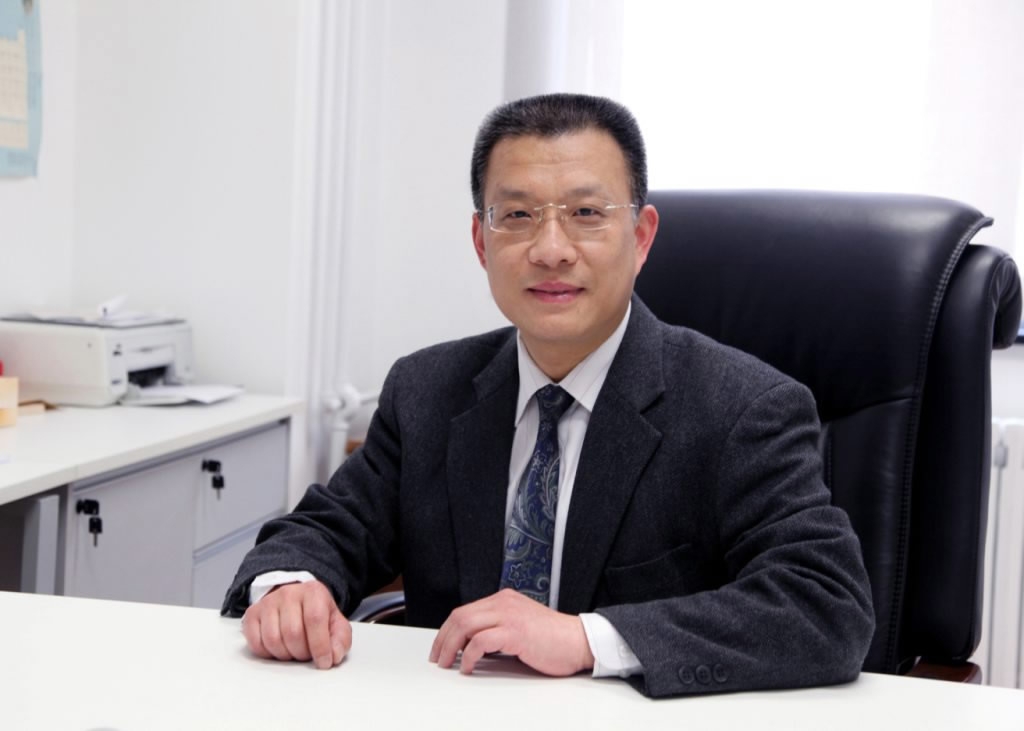
Tech & Sci
15:41, 29-Sep-2017
China starts construction of major national scientific infrastructure
By Gao Yun

China started building an integrated experimental device for extreme conditions in Beijing on Thursday, according to local media reports. Once completed, it can greatly improve the country’s scientific competitiveness in relevant industries.
It is the first major scientific and technological infrastructure project to be constructed at the Huairou Science City, a comprehensive national science center in Beijing's Huairou district.
Primarily operated by the Institute of Physics of the Chinese Academy of Sciences (CAS), it is a large scientific experimental device that incorporates a group of facilities which generate extreme conditions such as ultralow temperatures, ultrahigh pressure, high magnetic fields and ultrafast optical fields, as well as systems for sample representation, measurement and other supporting functions.

The rendering of the device in Huairou Science City, Beijing /CAS Photo
The rendering of the device in Huairou Science City, Beijing /CAS Photo
Extreme conditions
Substances are formed under certain physical conditions and, under the extreme conditions generated by these physical experiments, new substances and new states of matter that cannot exist under normal conditions will form, leading to new scientific phenomena and breakthroughs.
For example, the ultralow temperature is 300,000 times lower than room temperature, and the high magnetic field 600,000 times stronger than the Earth’s. The ultrahigh pressure may be equivalent to that of the Earth’s core.
Make a big significance
Making breakthroughs under extreme experimental conditions has become an important scientific model and many developed countries have invested heavily in this field, equipping their research institutions with advanced experimental facilities designed specifically for extreme conditions.
"The overall level of experimental methods under extreme conditions will directly improve China’s competitiveness in several core domains," said Fang Zhong, director of the Institute of Physics, CAS.

Fang Zhong, director of the Institute of Physics, CAS /CAS Photo
Fang Zhong, director of the Institute of Physics, CAS /CAS Photo
The device is of significant value in scientific research, Fang said. It can be used in the research of non-conventional superconductors, the topological state of matter and new quantum materials and devices, and also help accelerate the ultrafast science research in physics, chemistry, biomedicine.
Integration and penetration into different scientific disciplines will be promoted.
The project is expected to be completed in five years, and once completed, will be the world’s first consumer device that incorporates extreme conditions.
Both domestic and international users will have access to the device, according to Lyu Li, the project’s chief scientist.
59km

SITEMAP
Copyright © 2018 CGTN. Beijing ICP prepared NO.16065310-3
Copyright © 2018 CGTN. Beijing ICP prepared NO.16065310-3